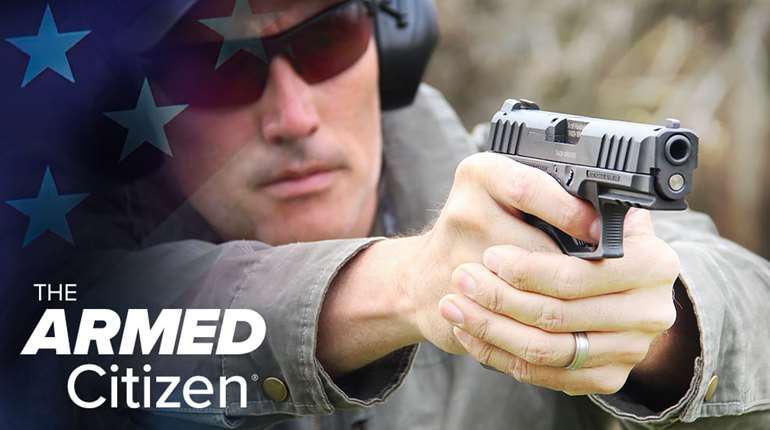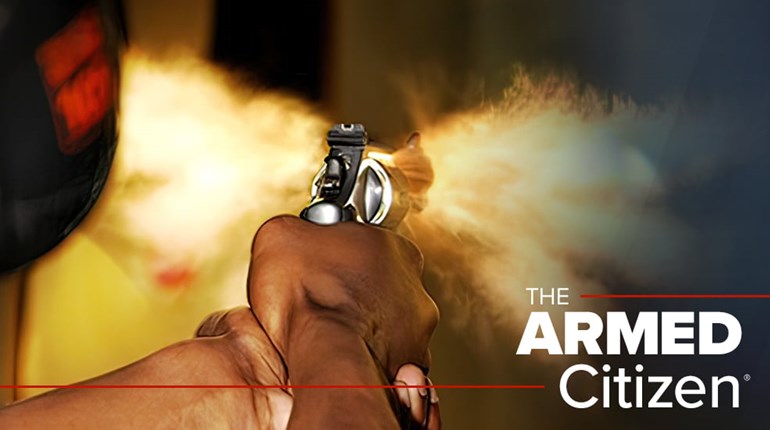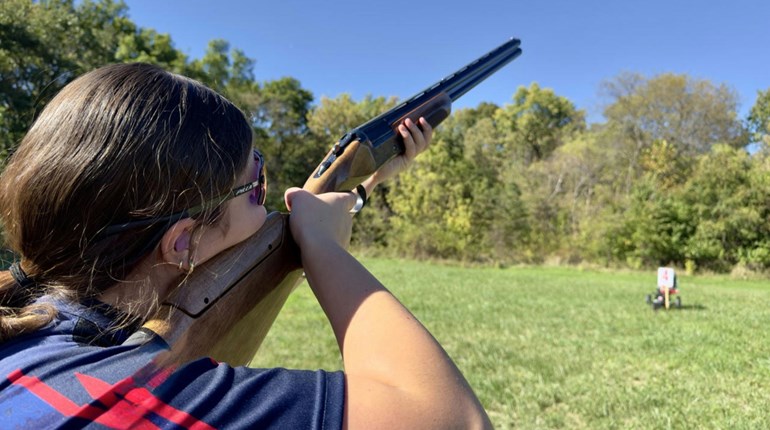
In the wake of recent terrorist attacks in Germany and throughout Europe, it’s clear that the German public and German politicians are moving in opposite directions on the issue of gun rights and the fundamental human right of self-defense.
On one hand, record numbers of German citizens are applying for weapons permits to protect themselves. On the other hand, German politicians are moving to further restrict Germans’ access to, and ownership of, firearms.
It’s a disconnect we see here in the United States as well.
Despite the fact that according to the FBI, violent crime in the U.S. has been falling for decades and is now lower than it’s been in 40 years—and despite the fact that this transformation was likely facilitated by dozens of states restoring the right to carry a firearm for protection in the same timeframe—politicians throughout the Democratic Party are now pushing to turn back the clock by reimposing restrictive gun controls in the U.S., led by presidential candidate Hillary Clinton.
So who will prevail? Lawful citizens and their God-given right to defend themselves? Or violent criminals, jihadist killers and the gun prohibitions that allow them to prey upon the innocent with little to fear?
In Germany, at least, that’s very much an open question.
This past winter, after the influx of 1.1 million refugees and migrants into Germany led to 1,100 attacks upon women in Cologne, Germany, on New Year’s Eve—including criminal complaints of more than 500 sexual assaults—applications for weapons permits skyrocketed.
So who will prevail? Lawful citizens and their God-given right to defend themselves? Or violent criminals, jihadist killers and the gun prohibitions that allow them to prey upon the innocent with little to fear?These small-arms carry permits—known as “Kleiner Waffenschein” in German—cover only nonlethal weapons, such as blank pistols, tear gas pistols and flare guns. Nonetheless, as of June, according to Germany’s Interior Ministry, the country’s National Weapons Register had recorded 402,301 permits, representing an increase of almost 50 percent year-over-year.
In the state of Bavaria, more people had applied for such permits in the first three months of 2016 than in the entire year of 2015. And applications in 2015 were more than double those in 2014.
Yet now, just weeks after a series of attacks on innocent citizens in Germany—including a bloody spree by an ISIS-inspired terrorist armed with an axe and a knife near Würzburg, and the murder of nine people in Munich by a German-Iranian gunman—politicians are pushing to further disarm lawful citizens.
Leaders of both of Germany’s leading political parties claimed more restrictive laws were needed to prevent follow-on attacks. Vice Chancellor Sigmar Gabriel signaled his support for more stringent controls on citizens’ legal access to weapons, and Interior Minister Thomas de Maiziere said such restrictions should apply throughout the European Union. Meanwhile, the top security official of the federal state of Bavaria called for amending the constitution so that Germany’s armed forces could be called up to assist police in such attacks.
But it’s hard to see how more laws in Germany—which already has some of the harshest anti-gun laws in Europe—could prevent the attacks that politicians use to justify more laws.
In Germany, owning a firearm is considered a privilege rather than a right. To lawfully obtain a firearm requires a license, which in turn requires applicants to show that they have an acceptable reason to own a firearm—and self-defense is not considered sufficient reason.Yet none of these laws prevented Germany’s recent attacks any more than such laws prevented similar terrorist attacks in Brussels, Paris and Nice this year.
Before purchasing a firearm, applicants must meet various other criteria as well. They must demonstrate expert knowledge, which can require months of training. They must be at least 18 years old, and anyone under 25 must undergo psychiatric testing. Those with any sort of record of mental illness, or drug or alcohol abuse, will usually be denied a license. Marksmanship competitors and hunters must carry liability insurance.
Yet none of these laws prevented Germany’s recent attacks any more than such laws prevented similar terrorist attacks in Brussels, Paris and Nice this year.
The gunman who murdered nine people in Munich reportedly had received inpatient and outpatient psychiatric care last year, meaning he wouldn’t have passed the psychological screening and “personal adequacy” test for receiving a firearm license. Indeed, he had no such license, and needed no such license to obtain the pistol that he used in his rampage. Authorities believe he obtained the illegal firearm through the so-called “Dark Web” of the Internet. And even if he had a license, he wouldn’t have been able to legally possess the 300 rounds of ammunition recovered from his body after his death in the shooting spree.
And the Munich killer was far from the only one to evade Germany’s strict gun controls. In 2014, police found that Germans lawfully own some 5.6 million firearms—but also estimated that up to 20 million firearms are illegally possessed in the country. Indeed, only about five percent of the firearms recovered from crime scenes were lawfully possessed in Germany.
So today, with terrorists intensifying their attacks in both countries, law-abiding Germans face the same question that law-abiding Americans do: Will they allow false-hearted politicians to blame their God-given, natural right of self-defense for the carnage and disarm them further, leaving them even more defenseless against these attacks? Or will they demand that the only thing that can protect them—their freedom to defend themselves and their families—be respected and restored?
Here in the United States, more than anything else, that is the either-or, do-or-die question that voters face on Election Day this November.
































